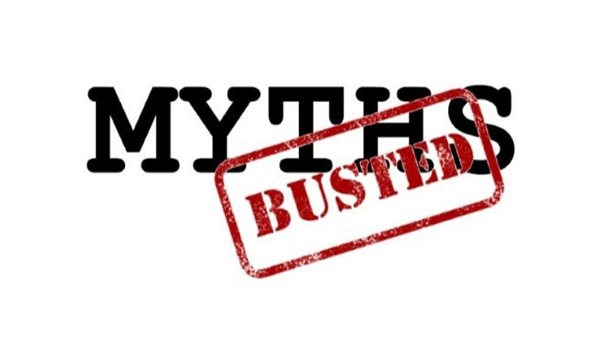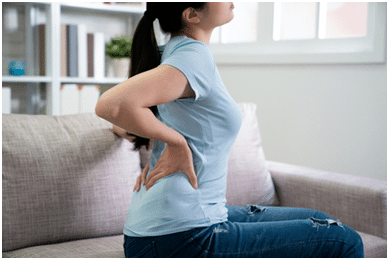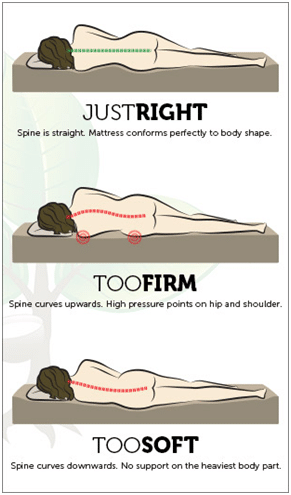
Debunking Myths of Lower Back Pain
Approximately 80% of adults have experienced low back pain/ dysfunction at certain points of their lives, and among those individuals, there are likely about 80% of them that will experience recurring back pain. We have seen many patients come in with all sorts of theories from their sources found online that imposed fears and worries before even receiving proper diagnosis or treatment! And we can tell you from experience that most of the “beliefs” or “beliefs” are fallacious.

You might have had conversations with coworkers or family members about back pain. Especially with the swift shift to mandated remote working from home in times of the pandemic, it is easy for back pain myths/misbeliefs to circulate around.
Let us debunk some of the most common myths about low back pain now!
Myth #1: The Best Way to Prevent Back Pain is to Sit Up Straight

It’s undeniable that slouching is bad for your back. But what’s the best posture of all? Can you sit up straight and still throughout your working hours?
First, we need to understand that different postures have varying effects on our back at different positions. Sitting while leaning forward often exerts the most pressure on our disc and tends to cause muscle fatigue quickly.
Truth is, there is no one BEST position that can keep your back sane for a prolonged period. The key is to take a break every 30 minutes to an hour between work or switch among different positions to help ease the strain/ gravity stress being exerted on your spine from time to time.
You can use a small, rolled towel or a lumbar roll to help maintain the normal curves in your back. You may also want to take a break from sitting and switch to standing up at work to reduce strain in the muscle groups constantly working. If you’re forcing your back to stay straight for an extended period of time, you could cause more back pain by overworking your muscles.
Myth #2: The firmer the mattress, the better it relieves your back pain

I can’t stress enough how many times I have heard people saying “Oh you have back pain? Get a hard mattress!” or “You need to change your mattress to a firmer one, soft mattresses are bad for your back!”
In reality, there is no definite answer to whether a firmer mattress helps to relieve back pain. Researchers found that medium-firm mattresses had better outcomes for pain and movement than patients with firm mattresses. A study performed in Spain in 2003 showed that amongst patients with chronic non-specific low back pain, medium-firm mattresses improved pain and disability and had better outcomes compared to firm mattresses.
For reference, a score of 6.5/10 is widely regarded as the industry standard for medium firmness (with 10 being the firmest and 0 the softest). This establishes a balance between pressure relief and support, which is appealing to a wide range of sleepers. However, it depends on what kind of sleeper you are and your back issues. It is best to consult your Physiotherapist or Physicians before you decide on it!
Myth #3: Bed Rest Is Always Best…

“Back pain? Try not to move and stay in bed for a few days, it’ll get better!” or “Take some painkillers it’ll go away!” and most of the time the pain revisits or it doesn’t resolve at all.
Truth is, staying in bed and being immobile will not help you get better faster. Moderating your activities and keeping yourself physically active in a limited way is a more effective way to improve your symptoms. Moving in comfortable and pain-free positions can ease your back pain and increase your recovery rate without bed rest.
Research shows that long bed rest can result in stiffer back overtime and eventually losing muscle strength as well as flexibility. If you stay in bed for a week, you can lose 20-30 percent of muscle strength and that’s when weakness starts to take over and lead to deterioration of your condition.
Unless you’re in severe pain (e.g. spinal fracture or unremitting numbness resulting from nerve impingement), bed rest is almost/ always not recommended.
Myth #4: Don’t lift heavy objects

Have you ever experienced recurring back pain that is caused by lifting heavy objects that stays on for a couple of days or even weeks? And you have decided that the only way not to strain your back again is to avoid lifting heavy objects at all costs. This may be an awful mindset.
Yes, you may have to refrain from carrying heavy objects for a couple of days or even weeks (if the extent of the injury is bad or after operative procedures) but there is always light at the end of the tunnel. You should think about strengthening your core muscles, correcting your muscle imbalances and your lifting technique instead of avoiding it.
Every individual is different and there are many ways to fix a faulty posture depending on your lifting habits. Our Physiotherapists will be able to identify those incorrect patterns and guide you with individualized exercises to strengthen the weak muscles, improve your flexibility and activity tolerance or functional capacity.
For more information on Low Back Pain, click on this linkhttps://rapidphysiocare.com/low-back-pain/. Please do not hesitate to contact us if you have any back issues at Rapid Physiocare on +65 6904 4900! We are looking forward to helping you towards your recovery!



